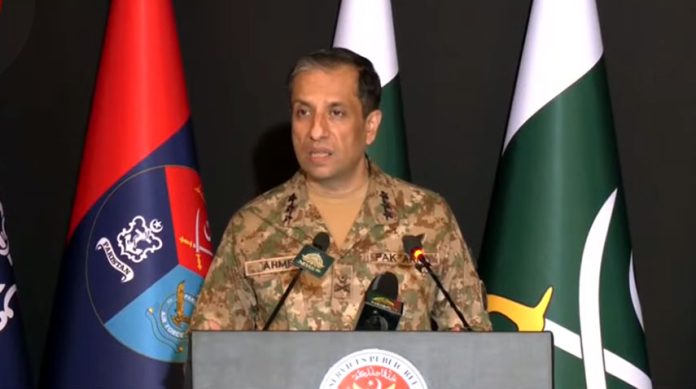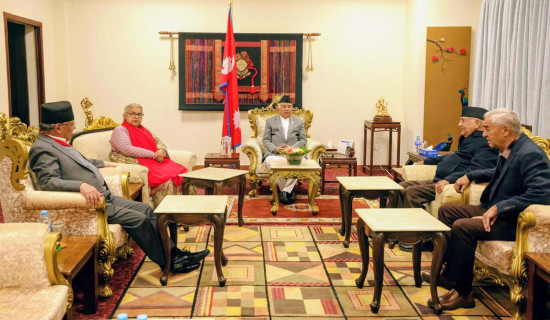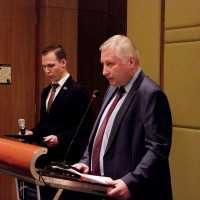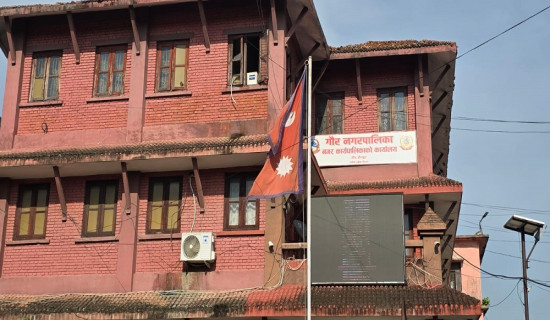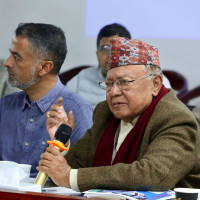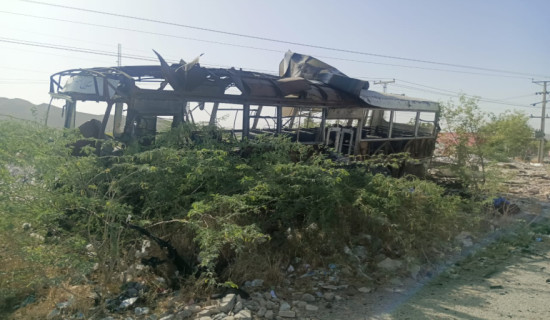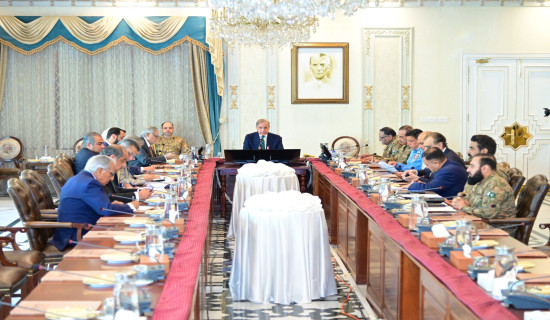- Tuesday, 23 December 2025
31 civilians martyred, 57 injured in Indian missile attacks: DG ISPR
ISLAMABAD, May 08: At least 31 Pakistani civilians were martyred, and 57 others sustained injuries after Indian forces launched missile strikes overnight between May 6 and 7, said Director General of Inter-Services Public Relations (ISPR), Lieutenant General Ahmed Sharif Chaudhry.
Addressing a press conference, the DG ISPR said Indian troops also launched cowardly attacks across the Line of Control (LoC), deliberately targeting civilian populations and places of worships.
“The attacks took place under the cover of darkness and focused mainly on mosques and residential areas, showing the extremist mindset of the Modi-led government,” he said.
The DG ISPR questioned the targeting of innocent children who had just begun to experience life’s joys. “Are these the so-called terrorists India chose to target during the night between May 6 and 7? This is the face of Indian cowardice — a nation that cannot confront the Pakistani military directly and instead targets innocent civilians under the cover of darkness.”
He also revealed that Indian forces desecrated multiple mosques during the recent attacks, desecrating copies of the Holy Quran. “This is a new low in India’s hostilities — targeting sacred places of worship,” he added.
The DG ISPR highlighted the disturbing footage showing the aftermath of Indian shelling that struck a mosque, where multiple copies of the Holy Quran were destroyed. “Look at how the sacred scripture was martyred… Is there any religion or form of humanity in the world that permits the targeting of places of worship and desecration of holy books?” he questioned.
He said that such acts of sacrilege reflect the depth of India’s moral and ethical decline. “This is not just a military aggression; this is a direct assault on religious sanctity and basic human values,” he added.
He said that the global community has already seen clear evidence of how India, through its proxies, has promoted terrorism within Pakistan. “Time and again, we have presented concrete evidence showing India’s involvement in cross-border terrorism and destabilising activities. When Pakistan started tightening the noose around these terrorists, reducing their space and dismantling their networks, India itself resorted to direct terror tactics,” he added.
The DG ISPR underscored that, unlike the enemy, Pakistan’s Armed Forces have demonstrated utmost professionalism and restraint by strictly targeting only military installations in retaliation. “We responded to India’s cowardice with strength and precision, choosing only legitimate military targets, not innocent civilians.”
The DG ISPR confirmed that the Pakistan Air Force (PAF) shot down five Indian fighter jets and one drone in response to the attempted airstrike. The downed aircraft included three Rafale jets, a MiG-29, a Su-30, and an Israeli-made Heron drone.
PAF, he said, could have shot down more than 10 aircraft but chose to show maturity and strategic restraint. “Not a single Pakistani aircraft crossed into Indian airspace, and none of the Indian jets were allowed to enter ours.”
He also confirmed that all PAF assets, including fighter jets and installations, are fully safe and operational.
DG ISPR said India had also targeted the Noseri Dam near the Neelum-Jhelum Hydropower Project, causing damage to critical infrastructure and endangering thousands of civilians. “Targeting water reservoirs is not only illegal under international laws but also poses a humanitarian risk.”
Stating that the Pakistan Army responded fully to the Indian aggression and destroyed “several” Indian checkposts, and showed footage of a brigade headquarters from where he said India was violating the LoC ceasefire.
Other check-posts that were hit included Chhatri, Jura, and Sarlia-1, as well as a unit battalion headquarters.
He said that as per Article 54 of the 1977 Additional Protocol 1 of the Geneva Conventions, it was prohibited to attack, destroy, remove or render useless objects that were indispensable to the survival of the civilian population, such as drinking water supplies/installations and irrigation works.
Additionally, he said that as per Article 56 of the same, works and installations that contain dangerous forces, namely dams, dykes and nuclear electrical generating stations, shall not be made the object of attack even if they were military objectives as such attacks may cause the release of dangerous forces and consequent severe losses among the civilian population.
The DG further said, Pakistan’s armed forces successfully intercepted and neutralised multiple types of drones launched by India, including smaller reconnaissance drones and advanced variants. Using Electronic Warfare (EW) capabilities, two Indian drones were safely brought down. He said, during all these engagements, Pakistan’s Armed Forces suffered no combat casualties, nor was any Pakistan Air Force (PAF) asset damaged.
The DG ISPR highlighted the suspicious timing of India’s attack, which coincided with Pakistan’s facilitation of international and local media visits to sites falsely claimed by India to be “terror training camps.”
He said that 150 journalists — both foreign and domestic — were being taken to Bahawalpur, Muridke, Kotli, and Muzaffarabad. “These were the same locations India had falsely accused of harbouring terrorists. The journalists saw for themselves there were no terror camps — only mosques, homes of poor civilians, and ordinary neighbourhoods. They documented everything. The world now sees the truth, not propaganda,” the DG ISPR added.
Importantly, DG ISPR pointed out that India’s air assault posed a grave threat to international aviation. “At the time of India’s attack, 57 commercial flights were in the airspace, including aircraft from Pakistan International Airlines (PIA), as well as from Saudi Arabia, Qatar, Emirates, Etihad, Gulf Air, China, Korea, Thailand, and others,” he disclosed.
“These flights carried thousands of innocent passengers. India, in its blind pursuit of aggression, jeopardised their safety — a clear violation of international aviation protocols and basic humanity,” he asserted.
He has reaffirmed that Pakistan’s quest for peace should never be misconstrued as a sign of weakness, emphasising that the nation and its armed forces remain united and resolute against any form of Indian aggression.
He said, “The Pakistan Armed Forces take immense pride in their brave nation, just as the people of Pakistan are proud of their valiant forces. Together, we stand as one — resolute, unwavering, and determined to defend our motherland.”
He praised the unity displayed by the nation in the face of Indian provocations, saying, “We salute the people of Pakistan for the way they have responded to this unprovoked aggression — speaking with one voice, standing shoulder to shoulder with their soldiers like an unbreakable wall.”
The DG ISPR urged the citizens to continue feeling and reflecting this spirit of national unity and determination in their homes, neighbourhoods, towns, and villages. “This collective resolve, this righteous anger — it is palpable everywhere across the country,” he noted.
He made it clear that while Pakistan seeks peace, it will never compromise on the security of its land and its people. “Let there be no doubt: the Armed Forces of Pakistan will never tolerate any threat to the sovereignty of the state or the safety of its citizens,” he asserted.
He issued a strong warning to the enemy, declaring, “We assure the nation that the blood of innocent civilians will not go in vain. Every drop will be accounted for — and Insha’Allah, justice will be served.”

